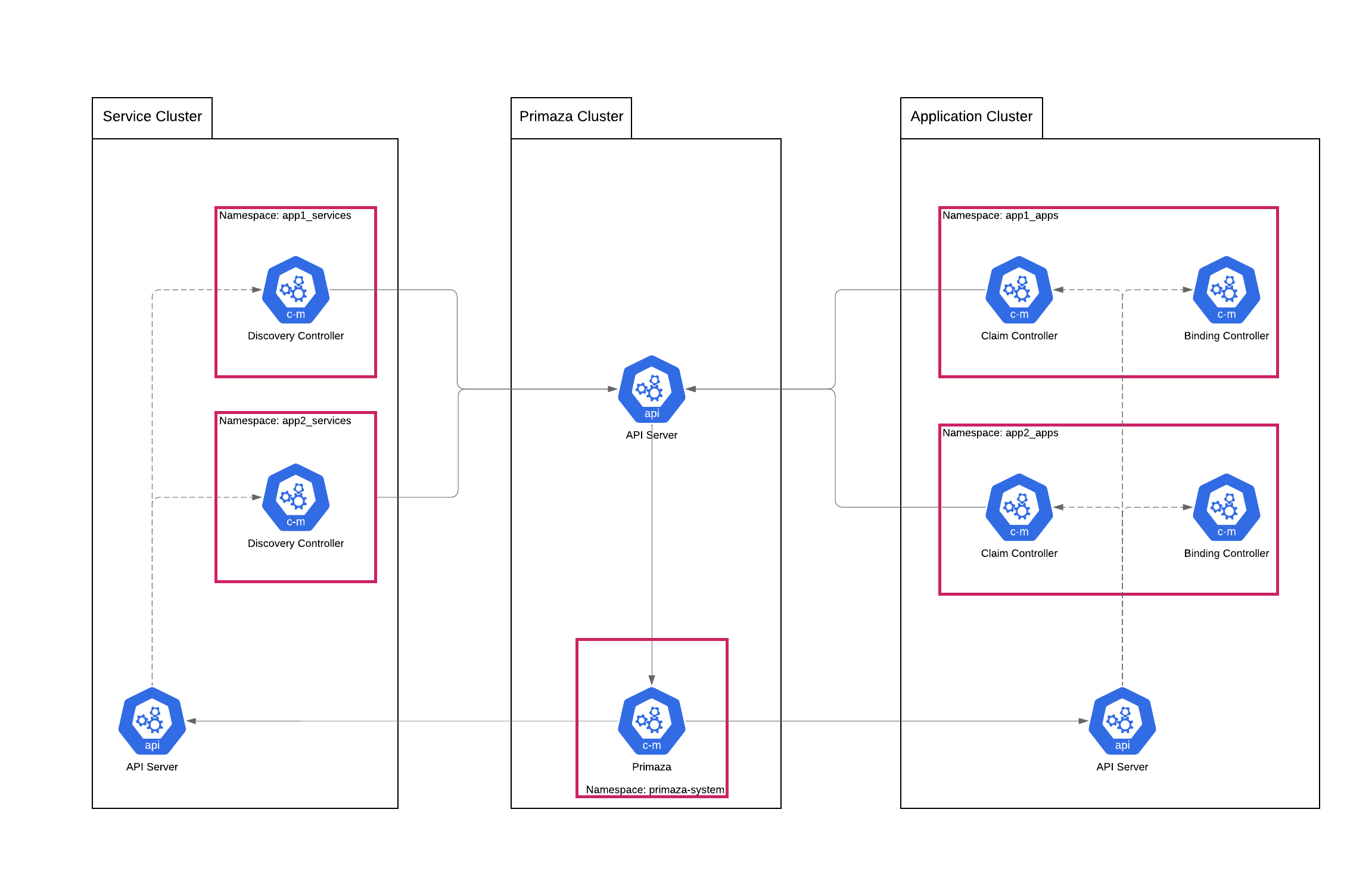Primaza
Multi Cluster Service Consumption Framework
The Problem
- Modern application stacks are increasingly complex
- Managing connections to all your supporting Services becomes more and more challenging… and that’s before you introduce additional clouds and hybrid environments
- No platform enables easy consumption of hybrid cloud services
- Needed to provide Scalability, Security and Portability
- Previous solutions (OSBAPI, Service Binding, etc.) gained moderate traction
- Replace one complexity with another
- Heavyweight, onerous, exacting implementations
- Customers are left to implement ad-hoc solutions
- Manual steps to provision and consume cloud service (not scalable)
- Custom IaC to provide the scale required (boilerplate imperative code)
- Too much time spent on non-value added activities
The Solution
- Separated logical environments that can span across different Kubernetes clusters
- An automatically collated Catalog that appropriately exposes available Services to Applications
- Leverages industry best practices to securely deliver service endpoint data to applications
- A platform that enables hybrid cloud services consumption in a portable, secured and scalable way
Benefits to Service Providers
- No action required!
- Continue to focus on delivering their cloud service with well-defined APIs
- Continue to work with Service Kubernetes APIs and Controllers
Benefits to Administrators
- Automatic addition of services to the catalog (via Service Class) - manual catalog management still possible (via Registered Service)
- Service Classes are easy to create, and can be built by the service provider, administrators, or third-parties
- Popular Service Classes delivered by Primaza out of the box
Benefits to Developer
- Service Catalog makes it easy to discover new services and see what's available in the environment
- Developers can automatically and easily claim services from the catalog
- Claims can be requested for multiple environments (CI/CD capable)
- Developers can discover/learn via provided sandbox
Implementation
Primaza's architecture is composed by the following elements:
- Primaza's Control Plane: manages environments, services and claims
- Application agents: binds applications to services
- Service agents: discover services

Primaza defines the following entities and controllers to provide the above described features.
Entities:
- Cluster Environment: represents an development environment on a Kubernetes Cluster.
- Registered Service: represents running instance of a software service.
- Service Binding: projects secrets referenced by ServiceBinding resources to application compute resources.
- Service Class: defines how a registered service can be automatically generated from a service
- Service Claim: represents a claim for Registered Service.
- Service Catalog: represents group of Registered Services.